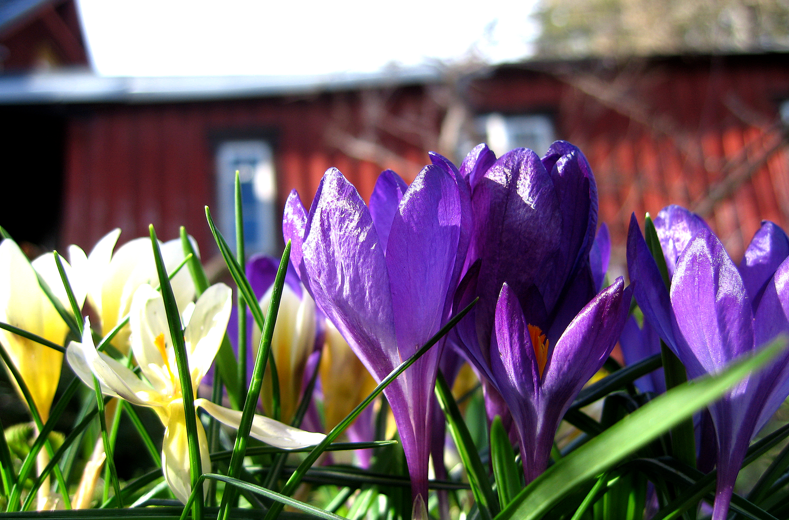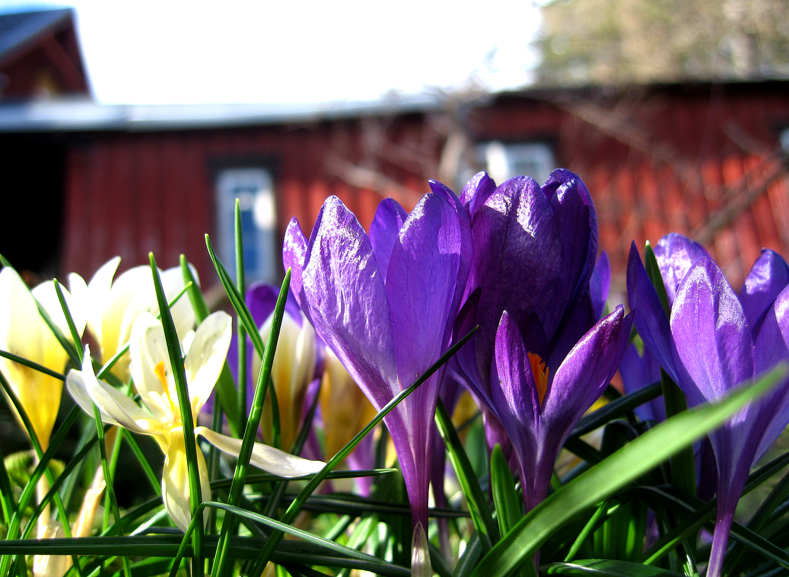Spring is in the air, everyone! It’s the most natural time of year to think about awakening your spirit and reconnecting with nature so let’s talk about urban gardening, shall we? Beautify your surroundings with colorful plants and add some energy and air improvement to your home and workspace. You can start small with houseplants or window planters, or go big with a green balcony, backyard or roof deck garden if you have the space. Many urban dwellers grow herbs, providing aromatherapy and beauty as well as delicious, locally sourced cooking ingredients.
If you think that you can’t commit to enjoying Mother Nature within an urban landscape, let me prove you wrong! There are so many resources today to help you get started, including great shops, classes and city organizations – and these are just the beginning. One of the best ways to get started is by visiting garden centers or nurseries with experienced staff who are excited to teach you how to make the most of your gardening space. Here are a few that will help you choose the right plants for your environment and how to properly care for them. No question is off limits, and they all give great advice and love doing it!
- Chelsea Garden Center
- Union Square Greenmarket
- Sprout Home
- Rose Red & Lavender
- Crest Hardware & Urban Garden Center
- Jungle Design
If you have ambitious plans for your garden, such as growing edibles or high-maintenance plants and flowers, you’ll need good soil and composting. Visit the Lower East Side Ecology Center at their Union Square Greenmarket location for helpful advice.
Photo Credit: Inhabitat
In addition to bringing plants into your home, there are other ways to get closer to nature within an urban environment. Living in a big city like New York, where your space is sacred, doesn’t have to stop you from fulfilling your need for nature. Satisfy your inner green thumb by joining a community garden or by volunteering to beautify your block or neighborhood.Did you know there are more than 600 community gardens in NYC? If you would like to join or contribute to near you, some of the best resources are Green Thumb or the Manhattan Land Trust ’s website. If you’d like to start your own, visit 596acres.org , a site map started by land access advocates. They identify vacant public land in the city and will support you every step of the way.If you’d like to learn more about gardening, the New York Botanical Garden has a midtown adult education center with a variety of classes to choose from. I recently took a class called “Grow Up!” on successfully growing edible crops on an urban roof. It was taught by Annie Novak, co-founder of Eagle Street Rooftop farm. Even though starting a roof garden was too ambitious for me, it was enlightening to learn tricks of the trade from such an experienced teacher. Everyone walked away with guidance for starting or maintaining their own space, no matter how small or large.I can’t think of a better way to encourage your green thumb than to spend a day visiting the New York Botanical Garden . Covering 250 acres including a 2-acre edible farm, this extraordinary resource includes a Home Gardening Center where you can learn timesaving techniques for building and maintaining your garden. You can also use the “Ask the Experts” tool on their website to get information about everything from house plants, floral design to edible gardens. If you are interested in volunteering, you can start here: Support the Garden.
Photo Credit: New York Botanical Garden
New York City is a leader in urban agriculture and home to many commercial farms. Check out these amazing farms below for an extra dose of inspiration – some offer educational workshops or volunteer days:
- Riverpark Farm – Manhattan
- Battery Urban Farm – Battery Park, Manhattan
- Eagle Street Rooftop Farm – Greenpoint, Brooklyn
- Brooklyn Grange – Long Island City and the Brooklyn Navy Yard
- Added Value – Red Hook Brooklyn
- Queens County Farm Museum – Floral Park, Queens
So, no matter the size your canvas, your level of knowledge or the amount of time you have to commit, you can bring nature into your city life in more ways than you can imagine! About the Author: Dee Dee Tiller serves on the board of Slow Food NYC working to create a food system that is good, clean, and fair. Among other responsibilities at Slow Food NYC, she works on their Urban Harvest program working with local schools, supporting gardening programs that educate kids about good food and develop healthy eating habits. Passionate about the healing properties of food, she attended the Institute for Integrative Nutrition, becoming certified in holistic health coaching. Her interest in food policy, hunger issues, and nutrition therapy were strengthened through this program. She has been an active member of her local CSA for years and enjoys the rewards of cooking and eating local, seasonal food as well as supporting local farmers.




